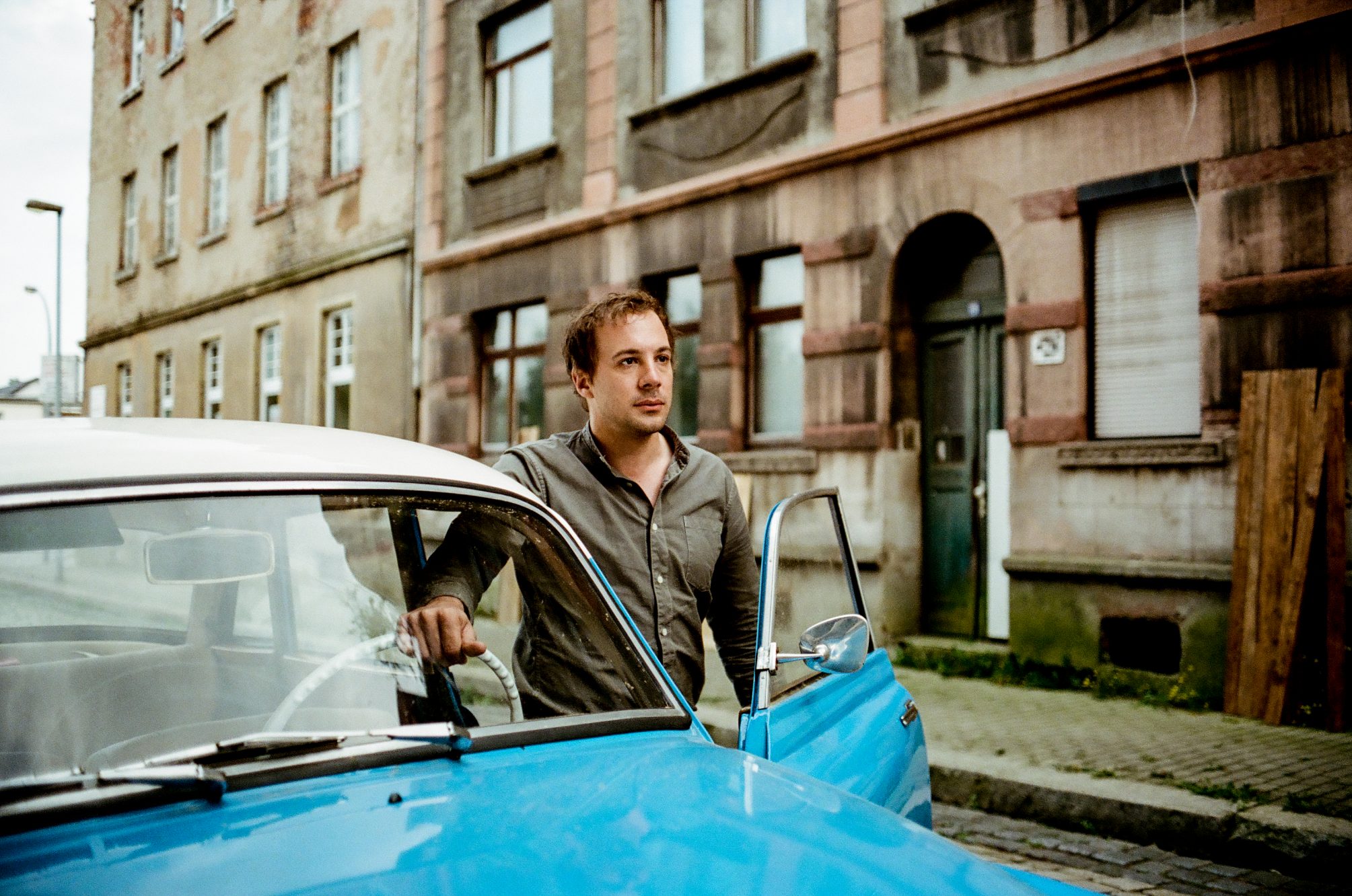
Dir.: Andreas Goldstein; Cast: Florian Teichtmeister, Anne Karis, Christin Alexandrow, Lena Lauzemis, Milian Zerzawy; FRG 2018, 100 min.
Based on the novel by Ingo Schulze, ADAM & EVELYN sees a couple’s crumbling relationship set against the final days of the German Democratic Republic in this thoughtful collaboration from Andreas Goldstein and Jakobine Motz.
In his tailor’s shop in the small town of Torgau, Evelyn surprises Adam one day ‘in flagrante’ with a much older client and, not taking his excuses for an answer, she sets out with girlfriend Simone (Alexandrow) for a summer break in Budapest. But this is no happy holiday. They arrive to discover that the Embassy of the Federal Republic of Germany has been forced to close its doors due to a massive influx of German citizens who are camping inside, waiting to be allowed into the FRG.
For two-thirds of the film we will witness – over the radio – the gradual downfall of the GDR regime, until they throw in the towel and open the Berlin wall and their borders in November. But Adam is totally unfazed, as if it’s nothing to do with him – an accusation Evelyn had made at the beginning. He picks up a hitchhiker, Katja (Lauzemis) and smuggles her nonchalantly over the boarder into Hungary. Near Lake Balaton, the two meet up with Simone and Michael (Zerzawy) – a West German biologist, until Evelyn lures Michael into her bed. Simone leaves but then Evelyn grows close to Adam again, sleeping with both men – a rivalry which Adam seems not to notice. The three of them end up in Austria where Evelyn discovers she’s pregnant – but unsure of the father. Adam falls under suspicion as being a spy and this is so incongruous that Evelyn starts laughing. But the point is made: when it comes to paranoia, both German states have more in common than the FRG might like to admit. Finally, Adam and Evelyn get a new flat in Hamburg where Evelyn is full of utopian dreams for her child, whereas Adam misses the restrictive, but safe GDR.
Book and film make a valid point: the uprising which brought down the regime was more or less restricted to East-Berlin, Leipzig and Dresden – in the countryside there was a sort of inertia which really did not lend itself to revolt. Evelyn is right when she remarks that “Adam did not really have to work: all the girls came to him, and he made them pretty clothes”. But there was no competition, because the state products were absolute awful.
The images in Torgau and the surrounding countryside reflect a country which time seems to have left behind: the cars are 30 years old, the houses are falling apart and sexual infidelity is the only game in town. As one commentator said, after the fall of the Wall “the GDR men had to give their women a decent sex life to make up for the material poverty of all concerned.” Adam will be a stranger forever in the re-unified country – looking backwards to an idyll, which didn’t really exist. AS
VENICE FILM FESTIVAL | 28 AUGUST – 9 SEPTEMBER 2018 | CRITICS’ WEEK